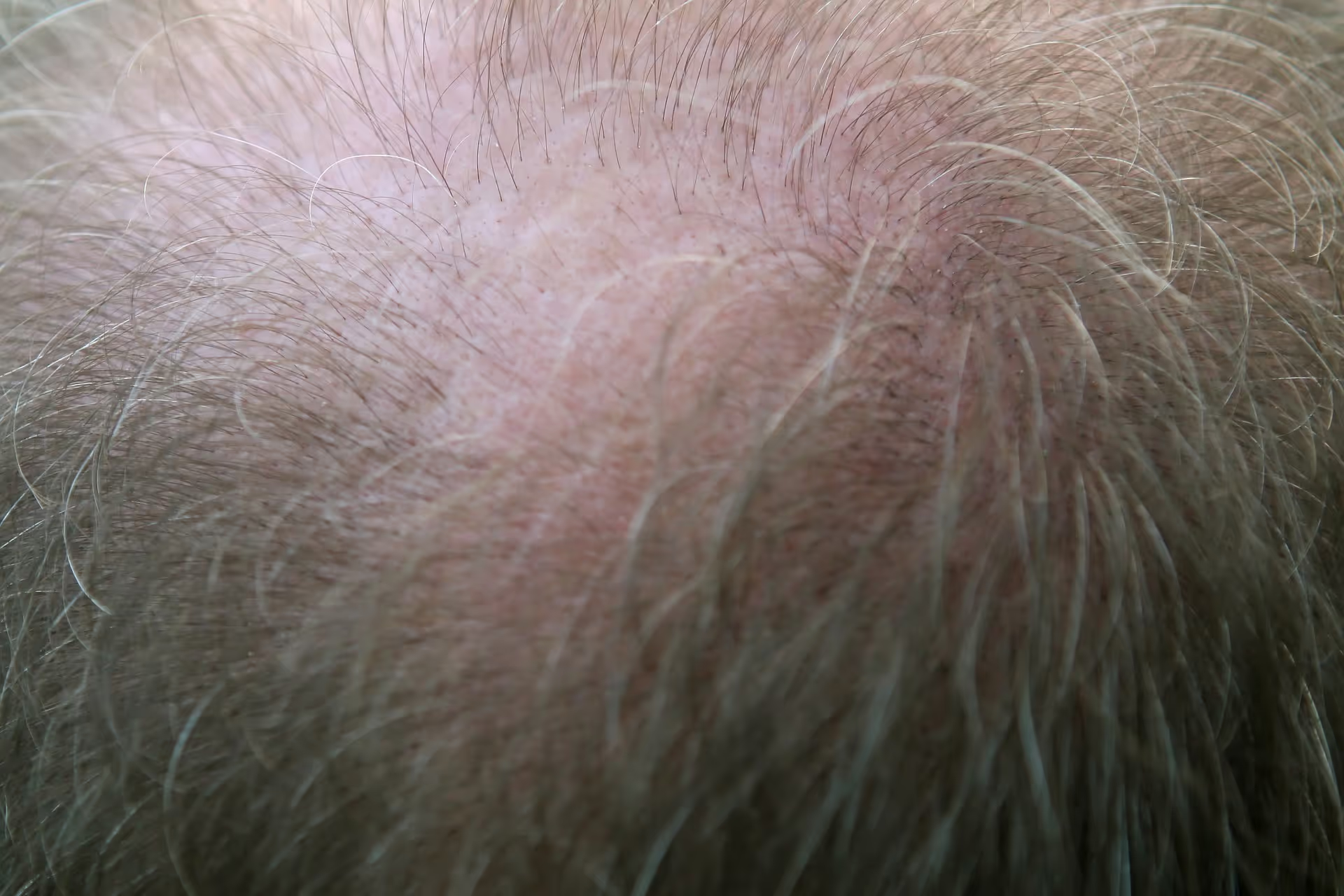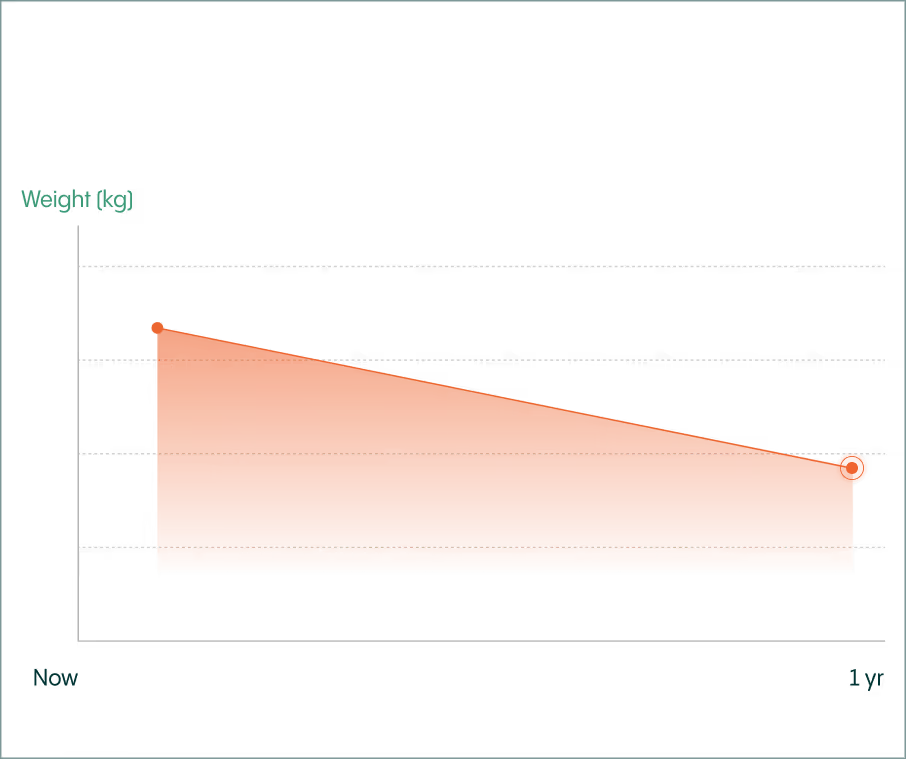

You’ve begun to notice that you’ve been losing a significant amount of hair, it feels suspiciously thin when you run your hand through it and your hairline seems to be receding too! You start to worry. Read more to learn about the link between DHT and male pattern baldness, and the various treatments available for male hair loss.

Androgenic Alopecia, also known as Male Pattern Balding, is primarily caused by dihydrotestosterone (DHT), an androgen that is derived from testosterone. DHT is responsible for supporting the development of male sex characteristics during puberty such an increase growth of male genitalia, a deep voice, increased muscle mass and increased body hair.
However, DHT can also be responsible for causing hair loss for men due to a process called “miniaturization”. During this process, DHT binds to the receptors found in hair follicles, causing them to weaken, shrink and ultimately die. This will eventually lead DHT-affected hair follicles to cease growing permanently if left untreated.
As DHT is the main cause of male pattern balding, you can slow down and prevent hair loss by either reducing the body’s production of DHT or more effectively, blocking DHT entirely. You can block DHT and treat hair loss in several ways:
Using a topical hair thickening shampoo that contains ingredients such as saw palmetto or ketoconazole which can disrupt DHT at a follicular level and prevents the miniaturization process from occurring. While it has been proven to be mostly effective, hair thickening shampoos do not block DHT entirely from binding to the receptors in your hair follicles.
The most effective way to treat DHT-affected hair follicles and prevent further hair loss is to block DHT at the source. Prescription medication like finasteride is specifically designed to block and prevent your body from producing any DHT by blocking the conversion of testosterone into DHT.
Finasteride (also known by brand names Propecia® and Proscar®) is a prescription-only medication, meant to be taken orally. Classified as a 5α-reductase inhibitor, it works by binding itself to the 5α-reductase enzyme and effectively blocks the conversion of testosterone into DHT. By blocking this conversion, it prevents DHT from binding itself to the receptors found in hair follicles which in turn also prevents the miniaturization process from occurring and stops the hair follicles from shrinking.
According to a clinical study by Adil and Godwin, it was found that finasteride, used in combination with minoxidil (also known by its brand name Rogaine® - a topical vasodilator that helps promote hair growth by widening and loosening blood vessels to allow blood to move more easily) was the most effective way of treating and preventing male pattern baldness.
Taking a daily dosage of 1mg of finasteride is able to block DHT production to prevent most cases of male pattern baldness. There is also a possibility that taking a daily dose of finasteride can also cause hair follicles affected by the miniaturization process to slowly grow back.
While blocking DHT does not cause any side effects for most men, there is a possibility that some might experience some negative effects from DHT blockers (especially when taking finasteride medication). Here is a list of the most common side effects:
As DHT blockers such as finasteride bind itself to the 5α-reductase enzyme and block the conversion of testosterone into DHT, there is a possibility that it can cause marginal increase in testosterone production. In a study done by the University of Texas, it was found that finasteride treatment caused testosterone levels to increase by a modest amount.
While finasteride usually does not affect on one’s sex drive and that most users will experience no significant change in their lives, there is a slight possibility that you might experience a noticeable decreased interest in sex. If you do experience this, it is important that you consult your doctor to decide the best course of action.
Similar to experiencing a decreased sex drive, there is a slight possibility that you might experience difficulties getting or keeping an erection when taking finasteride. If you do experience this, it is important that you consult your doctor to decide the best course of action.
While the above side effects may seem troubling, it is important to note that these side effects only affect a very small percentage of users and that most men that take finasteride medication will experience little to no side effects at all. In a study done by Kitasato University, of the 3177 men that took finasteride, only 23 men (0.7%) had experienced any adverse side effects.
In the rare event that you do experience any of these side effects, it is important to note that they can be stopped and reversed once you stop taking finasteride (or any other DHT blockers).
Should you begin to notice substantial hair loss, it is vital that you consult a medical professional early on and determine whether DHT blocking is a viable form treatment for you. This is because the earlier you begin to block DHT, the more successful it will be at preventing hair loss (and in some cases, even repairing and regrowing hair). Once complete baldness occurs, DHT blocking will no longer be a viable option to restore any hair loss.
If you begin to experience noticeable hair loss, it is advisable that you consult a doctor as soon as you can to prevent permanent hair loss from occurring. Here at Noah, doctors on our platform are best equipped with the knowledge to help you ascertain the root cause of your hair loss. They will be able to advise you whether DHT blocking is a suitable treatment for you, and can also prescribe you the right medication should you need it.



Articles featured on Noah are for informational purposes only and should not be constituted as medical advice, diagnosis or treatment. If you have any medical questions or concerns, please talk to your healthcare provider. If you're looking for a healthcare provider, click here.
Adil, Areej, and Marshall Godwin. “The effectiveness of treatments for androgenetic alopecia: A systematic review and meta-analysis.” Journal of the American Academy of Dermatology vol. 77,1 (2017): 136-141.e5. doi:10.1016/j.jaad.2017.02.054 (Link)
Roehrborn, Claus G et al. “Effects of finasteride on serum testosterone and body mass index in men with benign prostatic hyperplasia.” Urology vol. 62,5 (2003): 894-9. doi:10.1016/s0090-4295(03)00661-7 (Link)